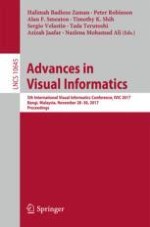
2017 | OriginalPaper | Buchkapitel
Data-Driven Iterative-Evolution-Participatory Design Model on Motion-Based Science Educational Application for ADHD Learners
verfasst von : Ahmad Fazil Zainal, Halimah Badioze Zaman
Erschienen in: Advances in Visual Informatics
Aktivieren Sie unsere intelligente Suche, um passende Fachinhalte oder Patente zu finden.
Wählen Sie Textabschnitte aus um mit Künstlicher Intelligenz passenden Patente zu finden. powered by
Markieren Sie Textabschnitte, um KI-gestützt weitere passende Inhalte zu finden. powered by